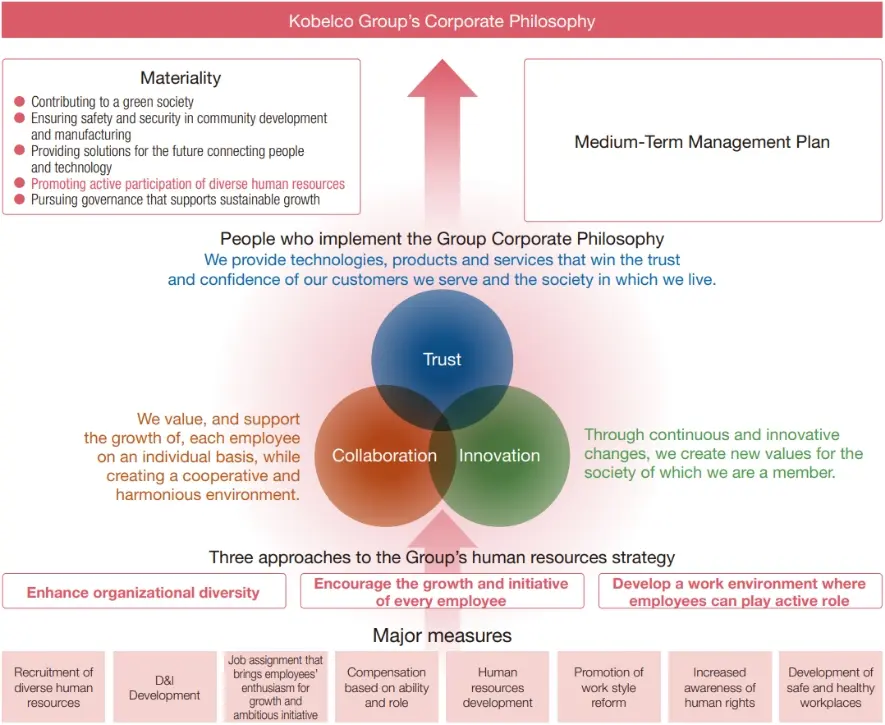Human Resources
Basic Policy
The Kobelco Group believes that in order to fulfill its social responsibilities as a corporate group and create new value, it is important to develop employees who understand and implement the Group Corporate Philosophy.
Our Group operates in a wide range of business fields, and possess human resources with diverse backgrounds, values, and skills. Amid changes in society and world trends, our bold efforts to contribute to society and realize a world we envision will be a key to further bolstering our strengths. In order to make it happen, we will strive to create a work environment in which our people can perform at their full potential.
Kobelco Group’s Human Resources Strategy
